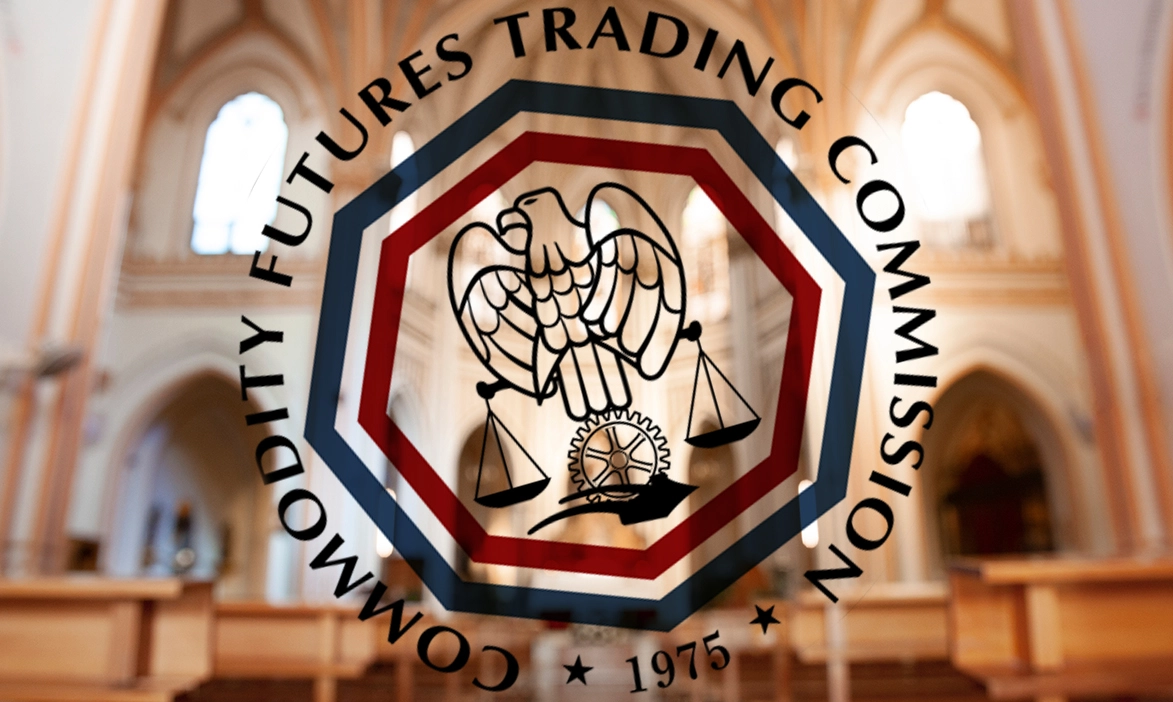The United States Commodity Futures Trading Commission (CFTC) has filed a lawsuit against Francier Obando Pinillo, a pastor in Washington state, accusing him of running a $6 million crypto Ponzi scheme. According to the complaint, Pinillo used his position of trust within his church to mislead over 1,500 victims with promises of guaranteed returns through high-performance cryptocurrency trading.
A Pastor Turned Alleged Fraudster

The CFTC’s complaint, filed on December 9 in Spokane federal court, paints a picture of deceit and exploitation. Pinillo, the pastor of a Spanish-speaking church in Pasco, Washington, allegedly leveraged his trusted role to promote his scheme to congregants and others through social media.
Claiming to be the CEO of companies like Solanofi, Solano Partners Ltd., and Solano Capital Investments, Pinillo advertised a “Solano ecosystem” that purportedly offered advanced cryptocurrency trading services. The CFTC alleges he promised investors monthly profits of nearly 35% through an automated trading bot and staking services for popular cryptocurrencies such as Bitcoin, Ether, Solana, Tether, and Dogecoin.
The Mechanics of the Scheme
Victims of the alleged scheme were lured with an enticing promise: substantial and consistent returns on their crypto investments.
Fake Technology and False Promises
Pinillo told investors that Solanofi’s advanced trading bot and proprietary software were responsible for the high returns. Additionally, the alleged Solanofi 2.0 staking service promised “guaranteed profits,” further enticing individuals with little to no experience in cryptocurrency.
Referral Bonuses and Online Dashboards
To encourage more victims to join, the scheme offered a 15% referral fee, incentivizing participants to recruit friends and family. Victims were provided access to an online dashboard displaying fake account statements and fabricated profits, creating an illusion of legitimacy.
However, the CFTC’s investigation revealed that these claims were entirely fabricated. “There was no automated computer trading program, no customer accounts, no trading, and no profits,” the complaint states.
Targeting the Vulnerable
The CFTC highlighted that the scheme primarily targeted “unsophisticated customers” who lacked experience in digital asset transactions or commodity trading. Moreover, the solicitations were conducted almost exclusively in Spanish, enabling Pinillo to exploit his community and abuse the trust placed in him as a pastor.
Legal Actions and Allegations
The CFTC accuses Pinillo of fraud and misappropriation, alleging he used the scheme to siphon funds for personal gain. The regulator seeks the following remedies:
- Restitution: Full repayment to the victims of the scheme.
- Asset Forfeiture: Seizure of all funds generated through fraudulent activities.
- Permanent Ban: Prohibiting Pinillo from trading or participating in any financial markets.
- Injunction: A permanent court order to prevent Pinillo from engaging in similar fraudulent activities.
The complaint underscores the severity of the misconduct, particularly given Pinillo’s role as a spiritual leader in his community.
Broader Implications for Crypto Regulation
This case is one of many in a year where the CFTC has ramped up enforcement in the cryptocurrency space. The regulator has reportedly secured a record $17 billion in penalties in 2024, much of it tied to crypto-related fraud and misconduct.
Cases like this highlight the ongoing challenges regulators face in addressing fraud in emerging markets like cryptocurrency. The lack of regulatory clarity and the rapid pace of technological innovation often create opportunities for bad actors to exploit unsuspecting victims.
The Need for Vigilance in Crypto Investments
The case against Pinillo serves as a stark reminder for investors to exercise caution in the cryptocurrency space. Here are key takeaways for potential investors:
- Research Claims Thoroughly: Promises of guaranteed returns, especially those exceeding traditional market rates, should raise immediate red flags.
- Verify Credibility: Ensure the legitimacy of platforms or individuals offering investment opportunities.
- Beware of Referrals: Referral bonuses often signal multi-level marketing or Ponzi schemes.
- Understand the Market: Familiarize yourself with the basics of cryptocurrency trading and investment to avoid being misled by false promises.
Community Betrayal and Fallout
The alleged actions of Pinillo have caused significant harm to his community. By targeting Spanish-speaking congregants who trusted him as their pastor, the scheme not only resulted in financial losses but also emotional and spiritual betrayal.
Efforts to reach Pinillo for comment have been unsuccessful, and information about his legal representation is not yet available.
CFTC’s Commitment to Enforcement
As cryptocurrency adoption grows, so too does the potential for fraudulent schemes. The CFTC’s proactive approach to enforcement in cases like this underscores its commitment to protecting investors and maintaining market integrity.
While regulations alone cannot eliminate fraud, they are essential for creating a safer investment environment and holding bad actors accountable. This case serves as a cautionary tale and a call for greater vigilance, both from investors and regulatory bodies.
